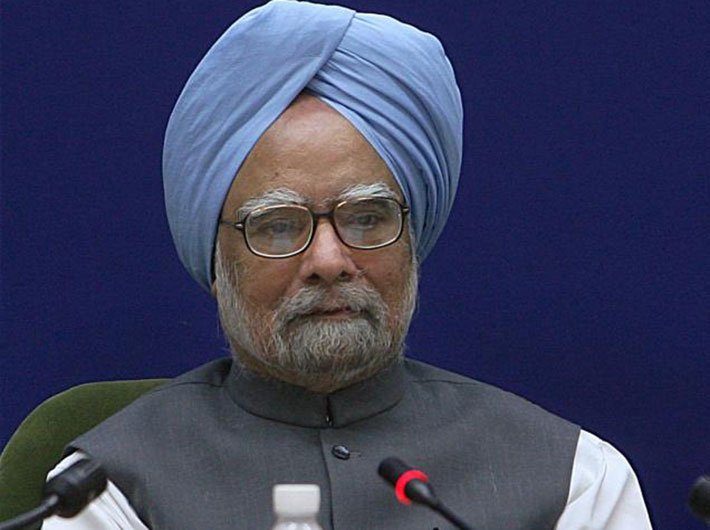My own feeling is that the rate of growth of national income, that is, the GDP of the country, can decline, former prime minister Manmohan Singh had predicted
Former prime minister Manmohan Singh, a respected economist, had described demonetisation as a monumental management failure and prophesied that the rate of growth of national income, that is, the GDP of the country, can decline by about two percentage point as a result of what has been done.
His words rang true with India witnessing a sharp dip in the GDP growth. The country’s GDP growth tumbled to 5.7 percent, a sign that the slowdown induced by demonetisation coupled with the uncertainty around GST hit growth. The growth rate was the slowest in 13 quarters.
Currency notes of Rs 500 and Rs 1,000 denomination were banned on November 8, 2016 and Manmohan Singh spoke about it in the Rajya Sabha on November 24, 2016.
Here is the full text of Manmohan Singh’s speech:
I rise to highlight some of the problems that have arisen after the decision to demonetise 500 rupee and 1,000 rupee currency notes. The prime minister has been arguing that this is the way to curb black money, to prevent growth of for counterfeit currency notes and also to help in control of terrorist finance activities.
I do not disagree with these objectives, but what I do want to point out is that in the process of demonetization, monumental mismanagement has taken place upon which today, there are no two opinions in the country as a whole. Even those who say that this measure will do harm or will cause distress in the short run, but is in the interest of the country in the long run, I am reminded of John Maynard Keynes, who once said, "In the long run, we are all dead".
And therefore, it is important to take note of the grievances of the people, the ordinary people, who have suffered as a result of this imposition on the country overnight by the prime minister, and I say so with all responsibility that the outcome which we do not know what the final outcome will be, the Prime minister has said that we should wait for 50 days.
Well, 50 days is a short period, but for those who are poor and deprived sections of the community, even 50 days of torture can bring about disastrous effect, and that is why, about 60 to 65 people have lost their lives, may be even more. And what is more, what has been done can weaken and erode our peoples' confidence in the currency system and in the banking system.
I want to know from the prime minister the name of any country he may think of where people have deposited their money in the bank but they are not allowed to withdraw their money. This alone, I think, is enough to condemn what has been done in the name of greater good of the people.
And, Sir, I would further like to point out that, in my opinion, this scheme of demonetization, the way it is being implemented, will hurt agricultural growth in our country; will hurt small industry; will hurt all those people who are in the informal sectors of the economy. My own feeling is that the rate of growth of national income, that is, the GDP of the country, can decline by about two percentage point as a result of what has been done. This is an underestimate and not an over estimate.
Therefore, I feel that the prime minister must come with some constructive proposals as to how we can implement the scheme and, at the same time, prevent the distress that has been caused to the common people. It is no good that every day the banking system comes with modification of the rules, the conditions under which people can withdraw money.
That reflects very poorly on the prime minister's Office, on the Finance Minister's Office and on the Reserve Bank of India. I am very sorry that the Reserve Bank of India has been exposed to this sort of criticism, which, I think, is fully justified. I, therefore, would not like to say much more than this.
I urge upon the prime minister to find practical, pragmatic ways and means to relieve the distress of the people, who happen to be a great majority of our people. After all, 90 per cent of our people are in the informal sector. Fifty-five per cent of our workers in agricultural sector are reeling under distress.
The cooperative banking system, which serves a large number of people in the rural areas, is non-functional and has been prevented from handling cash. So, all these measures convince me that the way the scheme has been implemented, it is a monumental management failure and, in fact, it is a case of organized loot and legalized plunder of the common people.
Sir, with these words, I conclude. It is not my intention to pick holes in what one side does or what another side does. But I sincerely hope that the prime minister will even, at this late hour, help us to find practical, pragmatic ways and means to provide relief to the suffering people of this country. Thank you.
Read: The full debate in the Rajya Sabha
